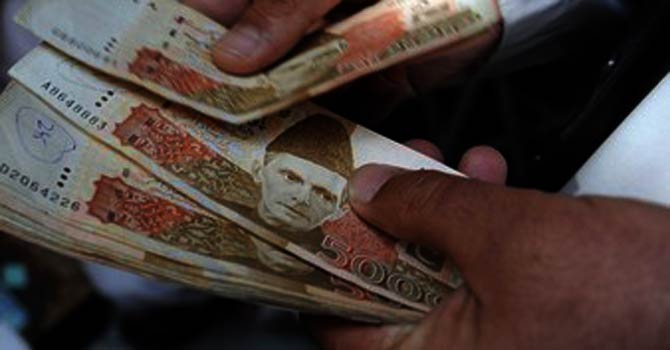
ISLAMABAD: Print and electronic media buzzes with the mantra: yax payment is the duty of each nation-loving citizen. But everyone knows that the ‘respectable’ lot in Pakistan is those who carry the dirty buck and whose tax-theft is hard to catch.
It is hard to catch for two reasons: specific laws to catch it do not exist in some areas and the tax staffs conveniently overlook when methods applied to detect the stolen tax money are cumbersome. The former anomaly allows a blanket chance to anyone who is compelled to steal. The latter chance is available only to those who can pay the tax staff to buy convenience for both sides.
Tax rules allow you to deduct the ‘business expense’ when calculating the income tax payable to the public exchequer. Hit the Income Tax Department website and read the audit mechanism for those who declare their annual incomes at Rs2.5 million to Rs10 million. Those who declare earning beyond that amount are to be audited differently.
Those who can conveniently declare their annual incomes at any amount below Rs2.5 million, despite crossing that ceiling, face just a cursory audit.
The tax man would not like to go through countless entries of business expense that help them declare income business cut down to below Rs2.5 million. The easiest way is that if the taxman suspects something fishy in the accounts, strike a deal for both sides to part happily.
In case of turnover of Rs5 million to 50 million, the business expense is relatively harder to conduct—entries of expense are far greater as compared to those made by the lower business earning entity.
But the auditing companies and the tax auditors have lately acquired expertise in determining the limits of expense in majority of businesses. These are, however, unofficial limits, based on the experience of auditors who deal regularly with declared amounts versus the expenses made on business.
Tax auditors who conduct the desk or field audit growingly are poised to acquire the expertise from the private audit professionals who are smart at determining the limits of business expense and at detecting excess claim of expenses made for suppressing the actually calculable income.
Previously, when tax-audit mechanism was poor and the taxman was free to extort businessmen or business houses, the tax authorities used to charge tax on 20% of the turnover. But then the businessmen and business houses took to suppressing the turnover, as is now routine GST-calculation by the producers, distributors, dealers and retail chains.
After a culture of sector-study based audit crept into the system of Pakistan, the common feature is dual: suppression of the turnovers and the over-claim of business expenses.
However, the tax authorities lately applied the mechanism of input-output-ratio based determination of production volumes at factories, which is applicable to almost all industries. Since the material used in the product became known both in kind and quantities, it became easier to largely detect the stolen GST.
However, the tax authorities are yet to evolve a mechanism for determining the near-actual business expense in majority of sectors. The professionals, producers, distributors, dealers and the retail chains can easily inflate the amount spent on doing business, as there are limitless variations to different business sectors.
The income-suppressing businessmen’s ease is doubled by the comfort offered by the gratified tax officials who can otherwise be severe in applying the audit injunctions in case their palms are not greased regularly.
They are supposed to check each and every entry of the expense; also double-entries if any, plus the charges computed as incurred in offering services or producing/distributing goods.
If the taxmen turned hard and stubborn, most businessmen can be trapped under tax-evasion charges. Any tiny bit of anomaly or overstatement of expense (or exaggeration of utilised items and services) might be a cause for issue of a tax notice. Such notices are deemed as start of troubling litigation and there might be no out-of-court deal for rescinding the charges even if wrongly or frivolously framed.
The business hours wasted on such litigation are precious to the recipient of the notice, and the common advice in the market is: better avoid the trouble even if the notice issued is frivolous. This culture of appeasement of tax auditors is routine in the Pakistani market and there is little panacea. Talk to any businessman with an annual turnover of over Rs2.5 million, and the first thing he would say is: better find out what appeases a tax auditor.
The writer has worked with major newspapers and specialises in analysis of public finance and geo-economics of terrorism
Published in The Express Tribune, August 17th, 2015.
Like Business on Facebook, follow @TribuneBiz on Twitter to stay informed and join in the conversation.






















































COMMENTS (8)
Comments are moderated and generally will be posted if they are on-topic and not abusive.
For more information, please see our Comments FAQ